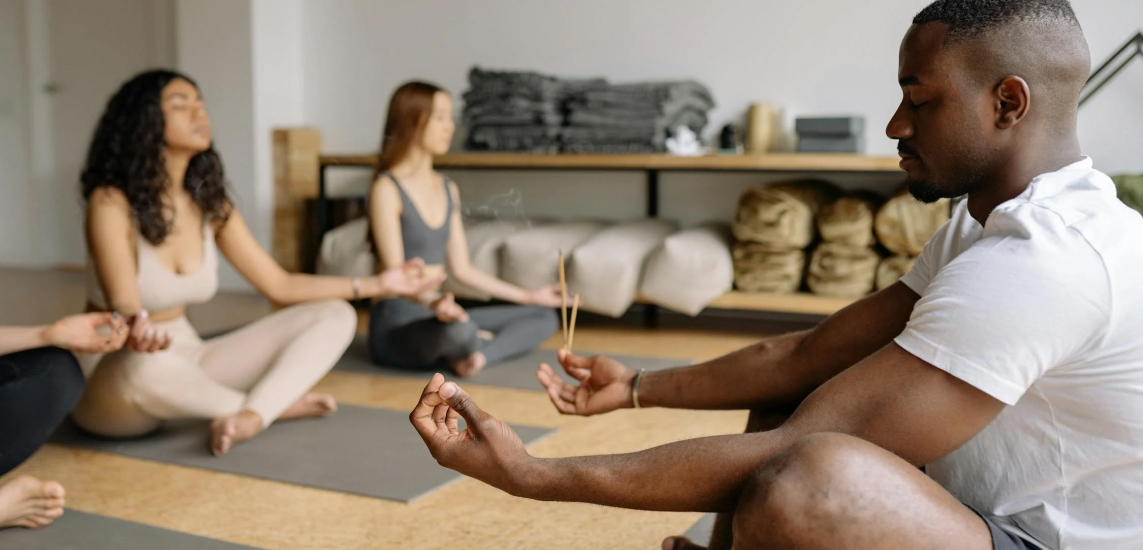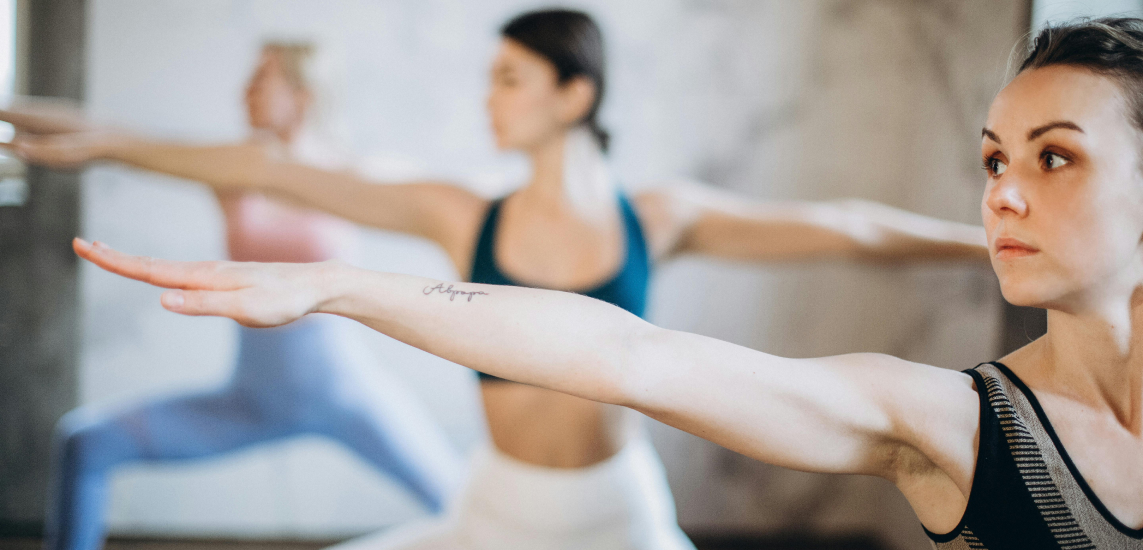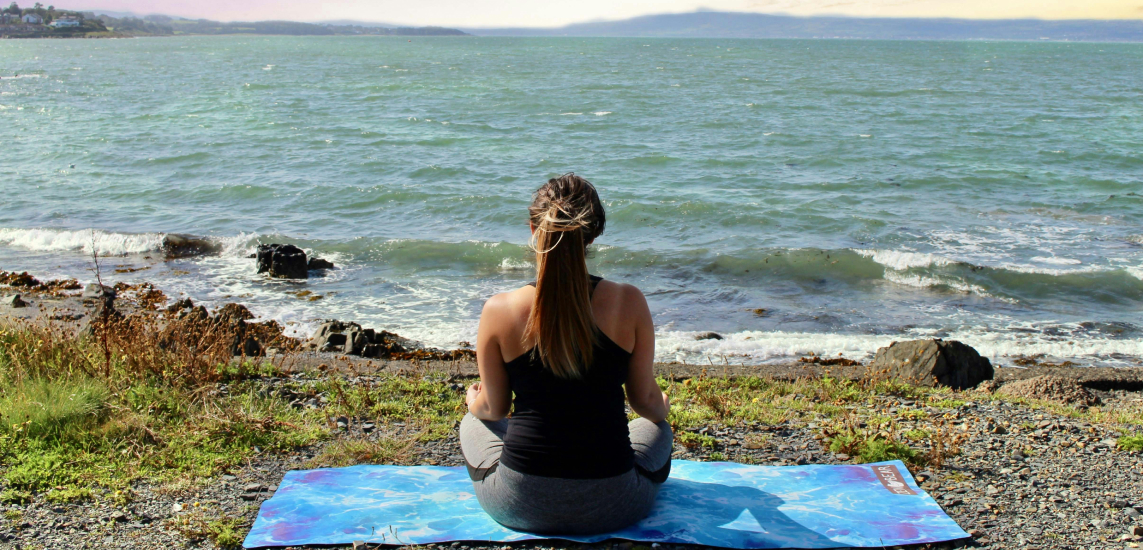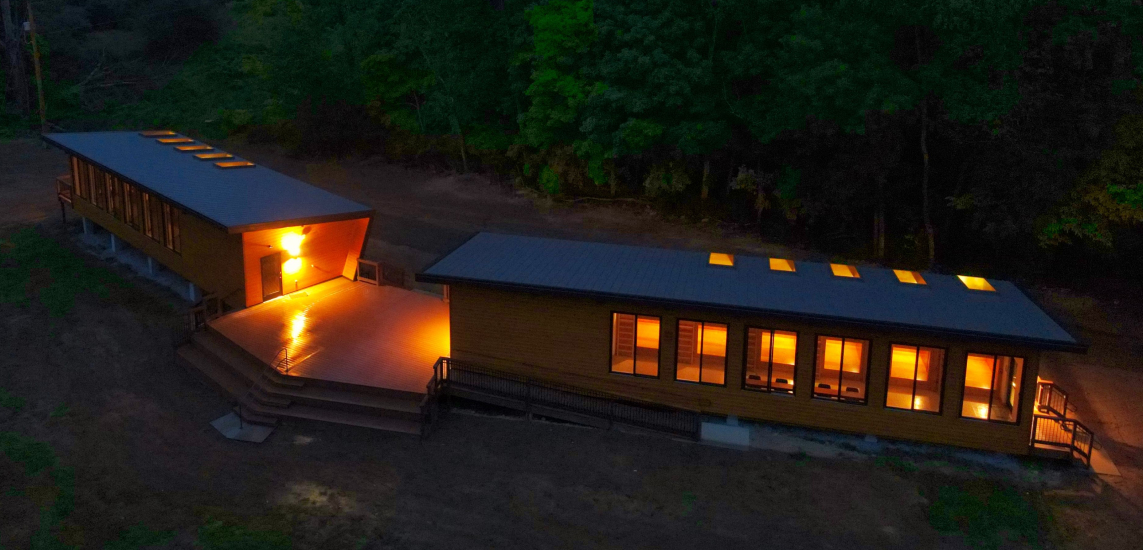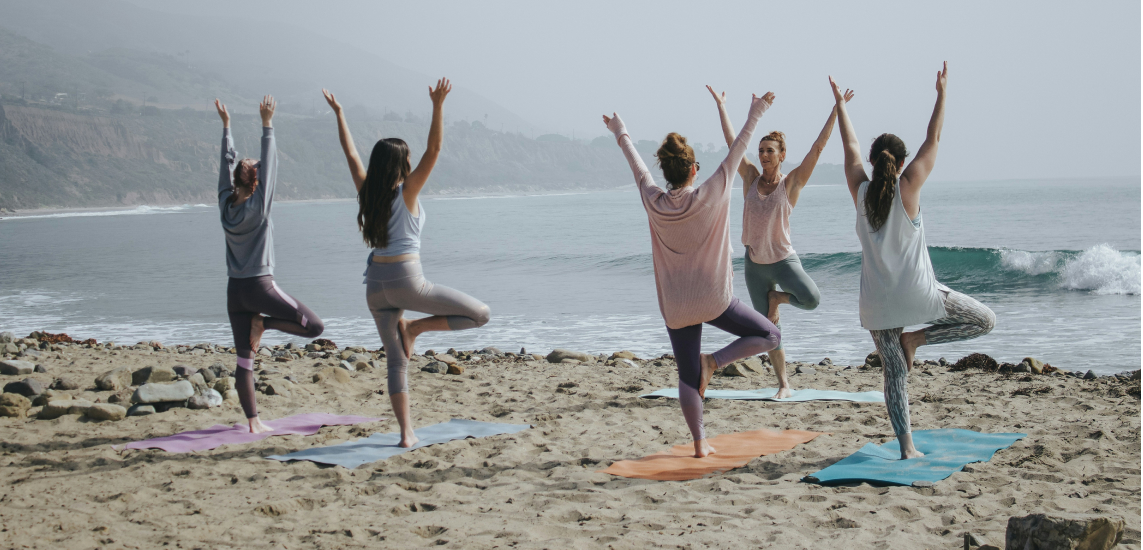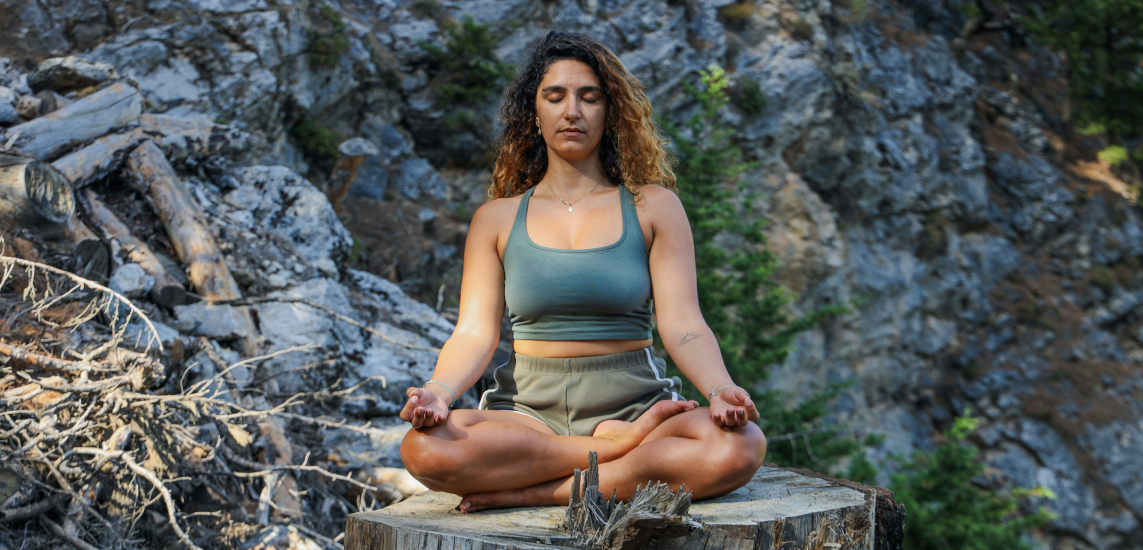This article was created using insights from Insight Timer’s meditation experts.
Meditation retreats offer a unique opportunity to step away from the hustle and bustle of daily life and immerse yourself in practices that promote peace, calm, and self-awareness—qualities we can all use more of! Whether you’re seeking stress relief, aiming to deepen your meditation practice, or exploring spiritual growth, a retreat provides the space to focus solely on your well-being.
For many first-timers, the idea of spending significant time practicing intensive meditation techniques can feel daunting. This article aims to ease those worries by offering a detailed guide about what to expect at your first meditation retreat and how to prepare adequately for the experience.
Key takeaways:
- Meditation retreats offer a transformative experience where participants can step away from daily life, immerse themselves in mindfulness, and deepen their meditation practice.
- Prepare yourself for a retreat by setting intentions and practicing mindfulness beforehand. Be sure to pack essentials and leave behind any distractions like electronic devices.
- It’s normal for emotions and restlessness to come up during a retreat. View these as signs of growth and opportunities for self-discovery.
- Post-retreat integration is essential. Reflect on your experience, maintain a regular meditation practice, and incorporate healthy habits into your daily life to sustain the retreat’s benefits.
What is a meditation retreat?
A meditation retreat is dedicated time away from daily activities, with a focus on mindfulness and self-reflection. It allows for a deeper dive into practices like sitting meditations, walking meditations, and mindful eating—all aimed at quieting the mind, creating stillness, and improving clarity.
Meditation retreats can be life-changing, as shared by David Gandelman, an Insight Timer meditation teacher, who reflects:
“Perhaps one of the most impactful experiences I had on a retreat was when I led a group to the Himalayas. We trekked, we laughed, we cried, and we suffered up the mountain, but when we reached the top, the views, and the completion of the experience was such a bonding and rewarding moment. It will never leave me.”
There are many types of retreats to choose from. You’ll want to consider your goals and personal meditation experience before making a choice. Here are a few options:
- Silent retreats: Participants observe noble silence, refraining from speaking, making eye contact, or using technology. Silent retreats are particularly powerful for those seeking to develop self-observation and gain clarity without external distractions.
- Guided retreats: Led by experienced teachers who offer structured sessions and personalized guidance. Guided retreats are ideal for beginners or those exploring new meditation techniques.
- Intensive retreats: These retreats, such as vipassana meditation or zen practice, require participants to commit to strict schedules and prolonged periods of meditation. They are best suited for experienced meditators looking to deepen their practice and push their mental and physical limits.
Each retreat style offers a unique path toward self-awareness, helping participants develop a deeper understanding of themselves and their surroundings.
Ready to experience a silent retreat in Ecuador? Join the Thanksgiving Silent Meditation Retreat in Ayampe from November 25–30, 2025. This 6-day immersion in mindfulness, movement, and silence offers space to simplify your life, reconnect with yourself, and find clarity in the lush rainforest overlooking the ocean.
What to expect during a meditation retreat
Attending your first meditation retreat typically feels like stepping into the unknown. Here’s a glimpse of what you can anticipate.
Typical daily schedule
Most meditation retreats follow a structured routine to help participants cultivate focused attention, but the routine will vary depending on the retreat center or program you select. Most retreat schedules emphasize mindfulness, simplicity, and disconnecting from daily distractions. A typical day might include:
- morning meditation
- mindful walking meditation
-
chanting or mantra repetition
-
evening reflection
Some retreats may offer more flexibility, while others may have stricter schedules or additional activities like service work or one-on-one teacher guidance.
Common challenges and how to overcome them
Facing challenges is part of the growth process during a retreat. One of the most common challenges is experiencing intense feelings. As Meredith Hooke, an Insight Timer meditation teacher, shares,
“Intense emotions often arise during a retreat. Writing an encouraging letter to your future retreat self can be incredibly supportive. Remind yourself why you are doing this retreat and why it’s important to process with compassion.”
Unplugging from technology and devices can also be difficult since our lives revolve around them on a daily basis—but once you get over the initial hump, it’s one of the most rewarding aspects of a retreat! Justin Williams, an Insight Timer meditation teacher, advises,
“Turn off your phone! Disconnecting helps your nervous system settle and lets you fully immerse in the retreat experience.”
Removing distractions, even for a few days, can bring profound clarity and peace.
Choosing the right retreat for you
Picking the right retreat is essential for a positive experience. Meredith Hooke emphasizes,
“The teacher is going to be the most important thing. Make sure you are familiar with their way of presenting information and that it resonates with you.”
Similarly, Justin Williams suggests considering both the location and the community,
“Choose a location that supports your relaxation—whether that’s a beach, forest, or mountains. Also, think about the kind of community the retreat attracts, as connecting with like-minded people can enhance your experience.”
Taking time to research these aspects ensures the retreat aligns with your goals. Some other things to consider include:
- Retreat length: What feels doable for you? If it’s your first time, you might want to opt for a weekend or three-day retreat to ease into the experience.
- Focus and style: Research the type of meditation offered (e.g., mindfulness, vipassana, zen, etc.) to make sure it aligns with your interests or current practice.
- Accommodations and amenities: Check the living arrangements, meals, and other amenities. If you have certain dietary restrictions or prefer to sleep alone, you’ll want to iron out those details before committing.
- Group size: Decide if you’d prefer a smaller, more intimate group for personal attention or a larger group for a sense of community.
Preparing for your first retreat
What to pack
Packing the right items can ensure you feel comfortable during your first retreat. What you need will vary, and most retreat facilitators will send a detailed list prior to the start date. Here are a few essentials you may need:
- comfortable, weather-appropriate clothing
- meditation cushion
- yoga mat
- toiletries
- prescribed medications or vitamins
- refillable water bottle
- journal for reflections
Avoid bringing distractions like electronic devices, heavy reading material, or items that don’t align with the retreat’s purpose. Packing light and intentionally can make your experience more focused and stress-free.
How to prepare mentally and emotionally
Preparing for a retreat isn’t just about packing. It’s also about getting into the right mindset so you can get the most out of your experience. As David Gandelman advises,
“Take some time to set intentions. Are you going to heal, rest, meet new friends, or explore an incredible location? Also, try sitting regularly in meditation before the retreat to ground your energy and relax your nervous system.”
Similarly, Meredith Hooke recommends practicing small, private retreats at home. She shares,
“Start with a 3-hour private retreat. Create a schedule with activities like sitting meditation, mindful walking, journaling, and a mindful tea break. Building up from there can make the transition into a full retreat smoother.”
Tips for getting the most out of your retreat
- Be open to the process: Meredith Hooke highlights, “Things rarely unfold the way we expect them to. Trust that what you are doing is changing the way you see the world and yourself.”
- Connect with others: Building relationships during the retreat can be transformative. As Justin Williams puts it, “There’s magic in community. Deep conversations in the ‘in-between’ moments can be just as transformative as structured sessions.”
- Participate fully: Embrace every activity and discussion, as these moments often yield the deepest insights.
What happens after the retreat?
The impact of a retreat can last long after its ending. That’s why it’s important to deeply reflect on your experience and integrate what you’ve learned into your everyday life. Most facilitators will offer a path for integration once the retreat is over, but there are things you can do on your own as well.
Incorporating healthy habits, like going to bed early, regularly meditating, and journaling, can help you retain the long-term benefits of the retreat. Using tools like Insight Timer can offer ongoing guidance and community support for your meditation practice.
Deepen your meditation journey with Insight Timer retreats
Take your practice to the next level with Insight Timer’s retreat marketplace. Explore transformative retreats led by experienced teachers, designed to help you grow in mindfulness and self-discovery. Whether you’re new to meditation or a seasoned practitioner, Insight Timer also offers over 200,000 free guided meditations, plus 25,000+ community groups to support your journey every step of the way.
What to expect on your first meditation retreat FAQs
What do you do during a meditation retreat?
During a meditation retreat, you can expect to participate in guided meditations, yoga, mindful eating, walking meditations, evening reflections, and more. The day often includes teacher-led sessions and rest periods to promote balance and well-being. Keep in mind that the activities and schedule will vary depending on the specific retreat you choose.
What to expect when you first start meditating?
Meditation requires patience. Some people initially experience restlessness or difficulty focusing, but over time, you’ll develop focused attention and a deeper connection to your breath and body.
Are retreats physically difficult?
Some retreats, especially intensive ones, can be physically challenging due to prolonged sitting or walking. You can anticipate the level of difficulty by checking in with the retreat facilitator prior to the start date. You can also adapt by using meditation cushions, stretching, taking breaks, and listening to your body’s needs.
How do I choose the right retreat?
Consider factors like location, duration, group size, meditation style, and your experience level. Research vipassana centers, guided retreats, or programs focused on specific themes to find a good fit. Reading reviews or speaking with past participants can provide additional clarity on what to expect.
Can beginners attend a silent retreat?
Yes, but it’s important to choose a beginner-friendly program. Look for retreats with guidance and shorter durations to ease into noble silence and mindful practices. Many centers also offer introductory sessions or workshops to prepare newcomers for the experience.
How can I maintain peace after a retreat?
Integrate meditation into your routine using apps like Insight Timer, adopt mindfulness practices, and journal to reflect on your experiences. Simple habits like mindful walking or gratitude journaling can help extend the retreat’s benefits into your daily life.
What are the benefits of attending a meditation retreat?
Retreats offer stress relief, enhanced focus, a deeper understanding of mindfulness, and a renewed sense of purpose. They can transform your relationship with yourself and the world around you. Many participants also report greater emotional resilience and improved mental clarity after returning home.

